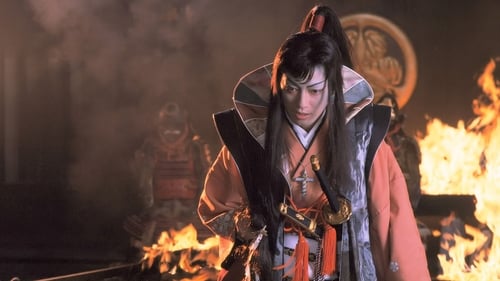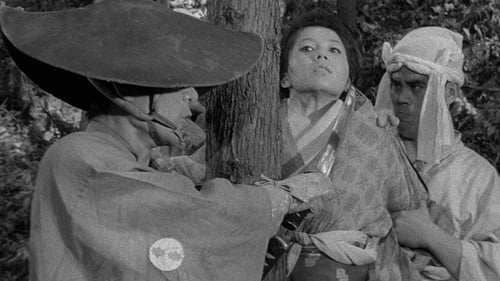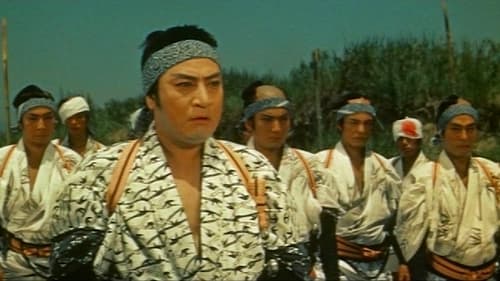Noboru Umezawa
出生 : 1922-09-06, Tokyo, Japan
死亡 : 2000-09-12

This is the third installment in the series that was broadcast on Fuji TV's "Historical Drama Special" in 1983, and the story continues from the end of previous work. Ichibei, who plays Tomisaburo Wakayama, is in a series of pinches, such as being seriously injured to the spear and being caught by the Oniwaban and tortured. The action scene in the snow, which reversely utilizes the fact that it was snowing in Kyoto at the time of shooting, is also very powerful.

A horse-riding samurai fights villains.

寛永の時代のある夜、島原の乱で殉死したはずの天草四郎が再び命を取り戻す。彼は自分と同じように不本意な死に追いやられた人々を集め、時の将軍家綱に復讐を開始するが、彼ら魔界衆の前に柳生十兵衛が敢然と立ちふさがった。

Magistrate Toyama no Kin-san is ordered to catch the phantom thief Nezumi Kozo, who is robbing daimyo and wealthy townspeople. Under the name of Nezumi Kozo, there is a small wholesaler Jiro. And once Toyama and Jiro, when they were young, were comrades who spent all their time gambling and having fun with women in the Yushima Tenjin area...

Legendary swordplay filmmaker Hideo Gosha's Sword of the Beast chronicles the flight of the low-level swordsman Gennosuke, who kills one of his ministers as part of a reform plot. His former comrades then turn on him, and this betrayal so shakes his sense of honor that he decides to live in the wild, like an animal. There he joins up with a motley group who are illegally mining the shogun’s gold, and, with the aid of another swordsman, gets a chance not just at survival but to recover his name and honor.

入り乱れる善玉・悪玉!竜神島に炸裂する物欲と愛欲と恐怖の大銃撃戦!豪華スター大競演で描く奇想天外の娯楽時代劇。竜神島に上陸した八木半蔵は中国人娘や正義感に満ちた若者と協力して、密輸をめぐり島を二分する悪党団を一掃する。

Village man
In this first episode, we are introduced to Takezo, what Musashi used to be before he became the man of legend. His beginning are not exactly auspicious. He sides with the Toyotomi at Sekigahara, and as a result finds himself on the losing side of the historic battle. He and his friend Matahachi manage to escape the slaughter although the latter is wounded in his leg. They stumble across the young Akemi who makes her living with her mother Oko by robbing corpses of their armor and anything else they can sell. Oko takes it into her head to seduce Matahachi, which she does first by skillfully sucking the gangrene from his blood, and then just by sucking.

Kinnosuke of Toyama sets out on a private mission to clear his father’s name for a crime he did not commit.

One of the great stories from Japan’s rich history comes to life in this true tale of the bloody showdown between two rival yakuza gangs in the 1840’s. The battle between Boss Sukegoro of Iioka and Boss Shigezo of Sasagawa has been portrayed many times, most notably in the first Zatoichi film, where the blind man befriends the tubercular ronin Hirate Miki, before cutting him down in one of the great duels in cinema history. This all-star extravaganza pulls out all the stops, with appearances by virtually all of the great actors and actresses from Toei’s studio at the time. Ichikawa Utaemon’s portrayal of the kind-hearted, noble yakuza boss Shigezo of Sasagawa contrasts sharply with the devious Sukegoro of Iioka. Corrupt as he may have been, his men were all willing to give up their lives for him.

Master swordsman, Tsukue Ryunosuke is confronted by the families of his victims. Will justice be served for the lost innocent lives? The conclusion of the famed Jidaigeki series is an amazing film, with a completely different perspective on the story from the later versions. While the international audience is more familiar with the “Sword of Doom” and “Satan’s Sword” versions of Daibosatsu Toge (The Great Bodhisattva Pass), the “Souls in the Moonlight” trilogy casts an entirely different light on Ryunosuke and his motives. Can this brutal killer be brought to justice, or is living his life as a blind wanderer a more terrible fate? His sword skills have not diminished, nor has his desire to kill!

Saotome, a sword master and guard of the Shogunate, pursues the mystery of a deadly aerial weapon that is responsible for the multiple deaths in town.

Kunisada Chuji is a common folk hero who looks out for poor people in the country who are at the mercy of corrupt officials. Intent on fulfilling a dying wish from one of his henchmen, Asataro, to find a decent home for his young nephew, Chuji descends from his hide-out in the mountain, and heads to the city in spite of numerous dangers that await him there.

First part of the famous Dai-bosatsu toge trilogy, based on Kaizan Nakazato’s unfinished long series of novels (41 books, written from 1913 to 1941). Set in the last period of the Tokugawa Shogunate, Daibosatsu Toge tells the story of Tsuke Ryunosuke, a nihilistic swordmaster who doesnt hesitate to kill anyone, bad or good. Despite the authors explicit refusal, the series were later made into plays and movies several times.

Fortune-teller
Based on the famous novel by Yamagami Itaro, this is the story of a group of ronin living in abject poverty in the latter days of the Edo period. Starring the great Konoe Jushiro, Ronin Gai is populated by an ensemble of colorful characters, social outcasts who patronize a restaurant and bar on the outskirts of Edo. Among them are masterless samurai reduced to drunkenness and debauchery. One disgraced and disillusioned former warrior gets a chance at redemption when he is hired to retrieve a famous knife from a corrupt lord. This is the third version directed by Makino Masahiro and is considered a true classic.












